How to Make Buttermilk
If you don’t feel like running to the store, no worries – you can learn how to make your own buttermilk right at home! All you need is milk and a splash of either lemon juice or vinegar to make this baking essential. This is a great way to save a little money and use the ingredients in your kitchen that you likely already have on hand!
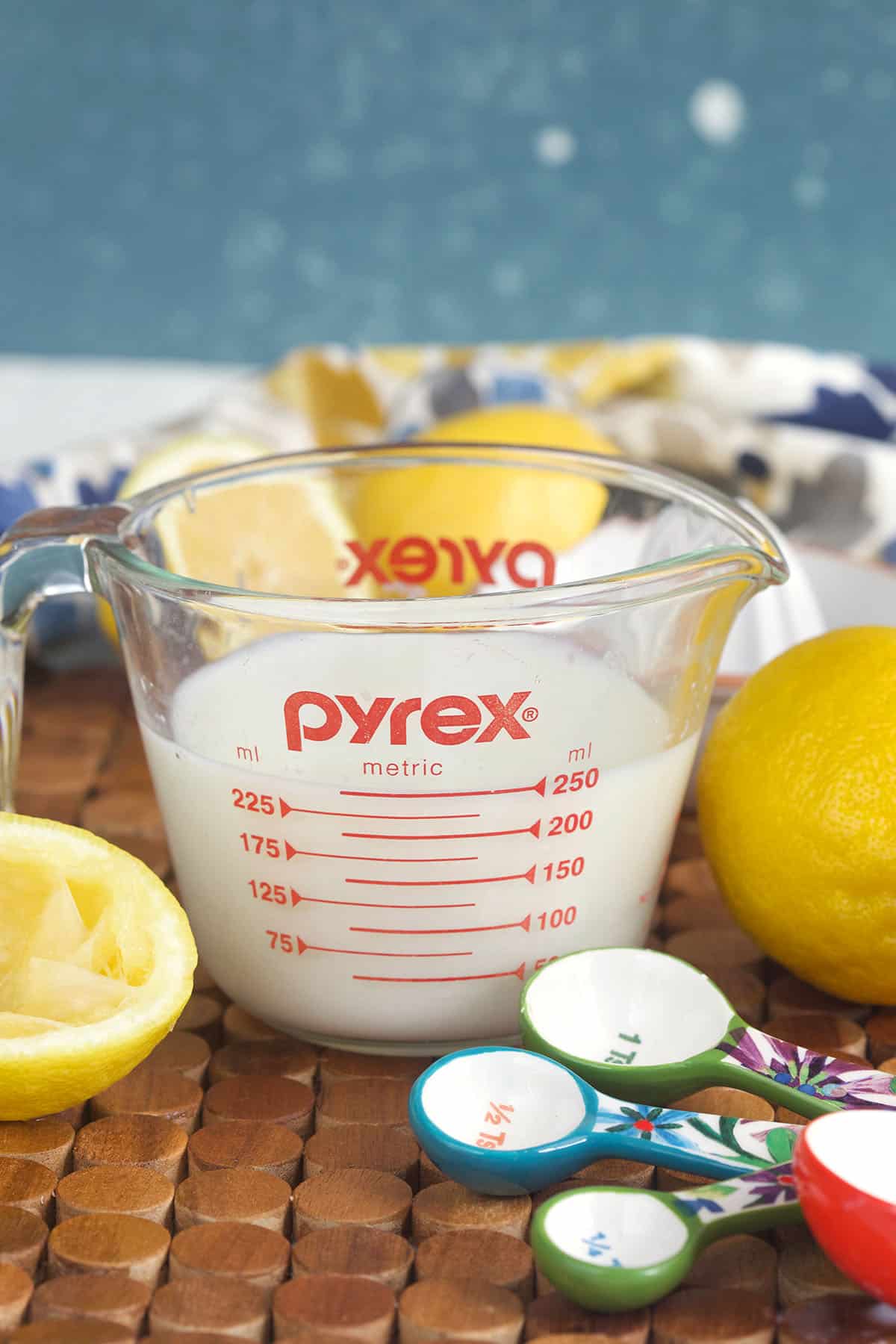
How to Make Buttermilk
I hate buying a whole container of buttermilk. Why? Because I almost never use the whole thing and it goes to waste! I hate wasting both food and money, so little kitchen hacks like this are right up my alley.
Buttermilk is a difficult ingredient to use all of most of the time, unless you’re a very avid baker. For those of us who just whip up some baked goods once in a while, though, we don’t need a whole carton taking up real estate in the fridge.
You know what I have plenty of, though? Milk and vinegar! And lemon juice! Instead of paying for a carton of buttermilk I’ll never use all of, I’d much rather combine two simple kitchen staples to make exactly how much buttermilk I need. And yes, both vinegar and lemon juice will do the trick. You can scroll down just a little bit to see more details on both ingredients.
So, how exactly does buttermilk work? Why do we use it at all? Basically, the acidity in the milk (created by either lemon juice or vinegar) breaks down protein and gluten in baked goods.
The intended result is more tender, fluffier goodies! That’s why buttermilk is such a popular ingredient in most pancake recipes. Pancakes are notably at their very best when fluffy, right?!
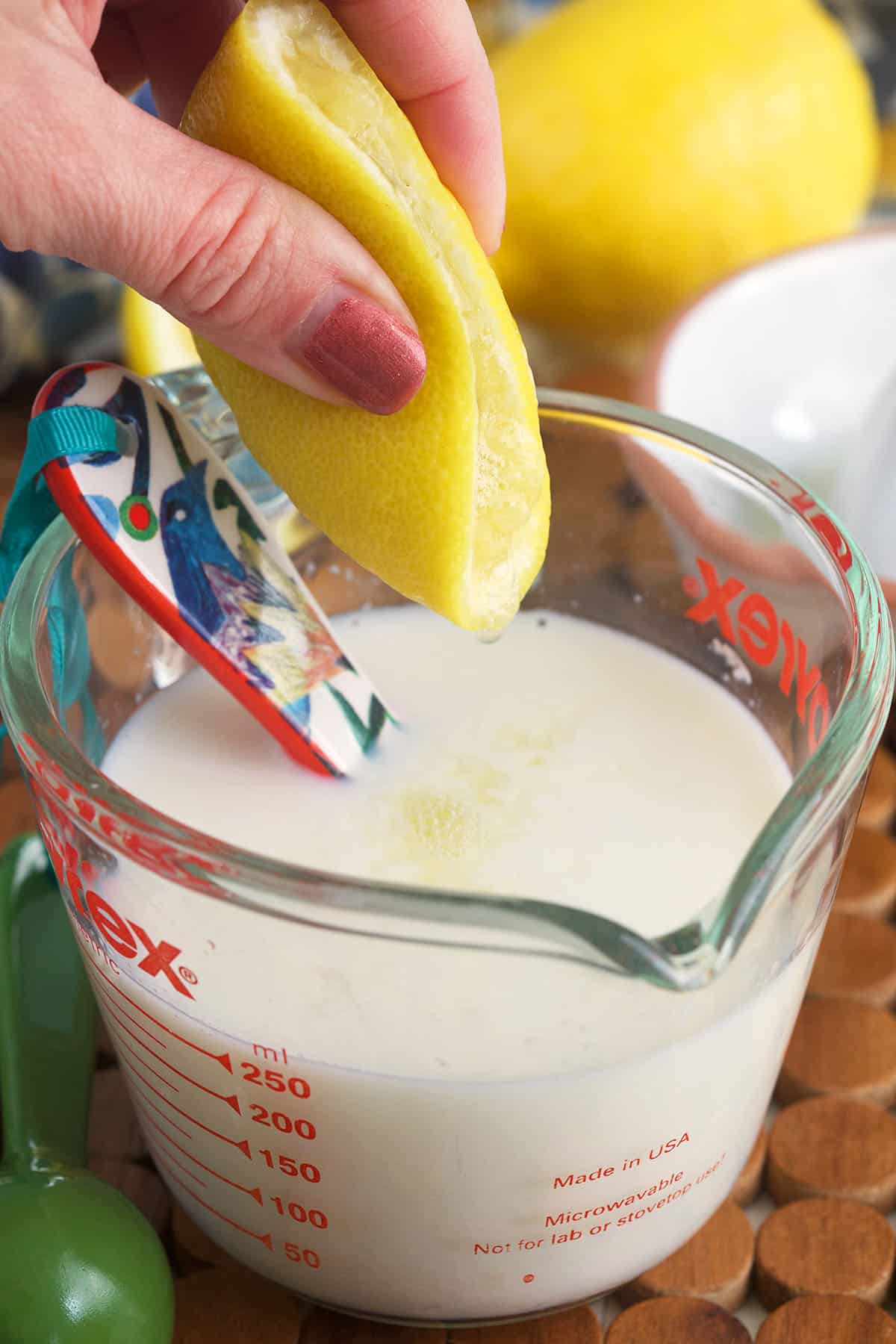
How to Make Buttermilk
Grab your milk and either some lemon juice or vinegar and let’s get to mixing! This recipe will only take a few minutes of your time. It really couldn’t be any easier to master this simple hack!
- Combine. Stir together your choice of acidity (lemon juice or vinegar) with milk.
- Let sit. Let this mixture sit, undisturbed, for about 1 minute.
- That’s all there is to it, friends. Enjoy your buttermilk!
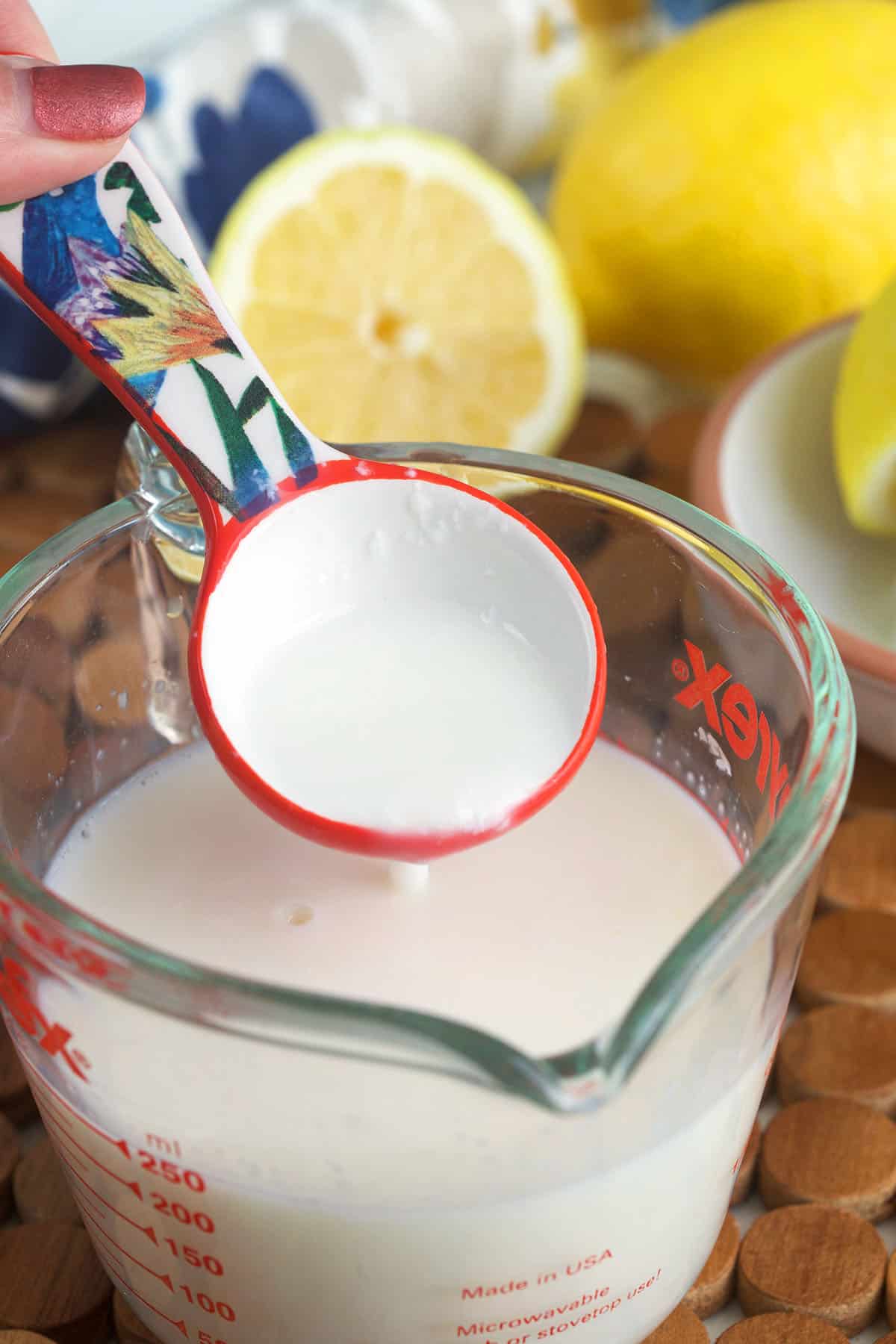
Tips and Variations to Try
Here are just a few easy ways you can customize your homemade buttermilk and make it the very best it can be:
- Make it dairy-free. Yes! You can use soy or coconut milk in place of dairy milk to make a vegan-friendly substitution.
- Let it sit. Letting the buttermilk sit for at least 1 minute will give it enough time to curdle and fully become the acidic mixture you need it to be. You can let it sit for up to 5 minutes if you’d like.
- What kind of vinegar should you use? I recommend using plain white distilled vinegar. That way, you have the correct level of acidity added without any additional flavors.
- Use fresh lemon juice. Try to avoid using anything from concentrate! It won’t have the correct amount of acidity to actually curdle the milk and yield buttermilk. Freshly squeezed lemon juice is the way to go to ensure the best results every time.
How to Use Buttermilk
There are so many ways to use this dairy product in your baking! Remember, the point of using buttermilk is to create fluffier results. Here are just a few of my favorite recipes that call for buttermilk:
- Buttermilk Cornbread
- Bananas Foster Cinnamon Rolls
- Apple Cider Donuts
- Homemade Hush Puppies
- The Best Buttermilk Pancakes
Want to try it in some savory recipes? We love these Buttermilk spiked dishes:
- The BEST Oven Fried Chicken // Video
- Buttermilk Blue Cheese Dressing
- Parmesan Zucchini Fries Recipe
- Fried Pickles
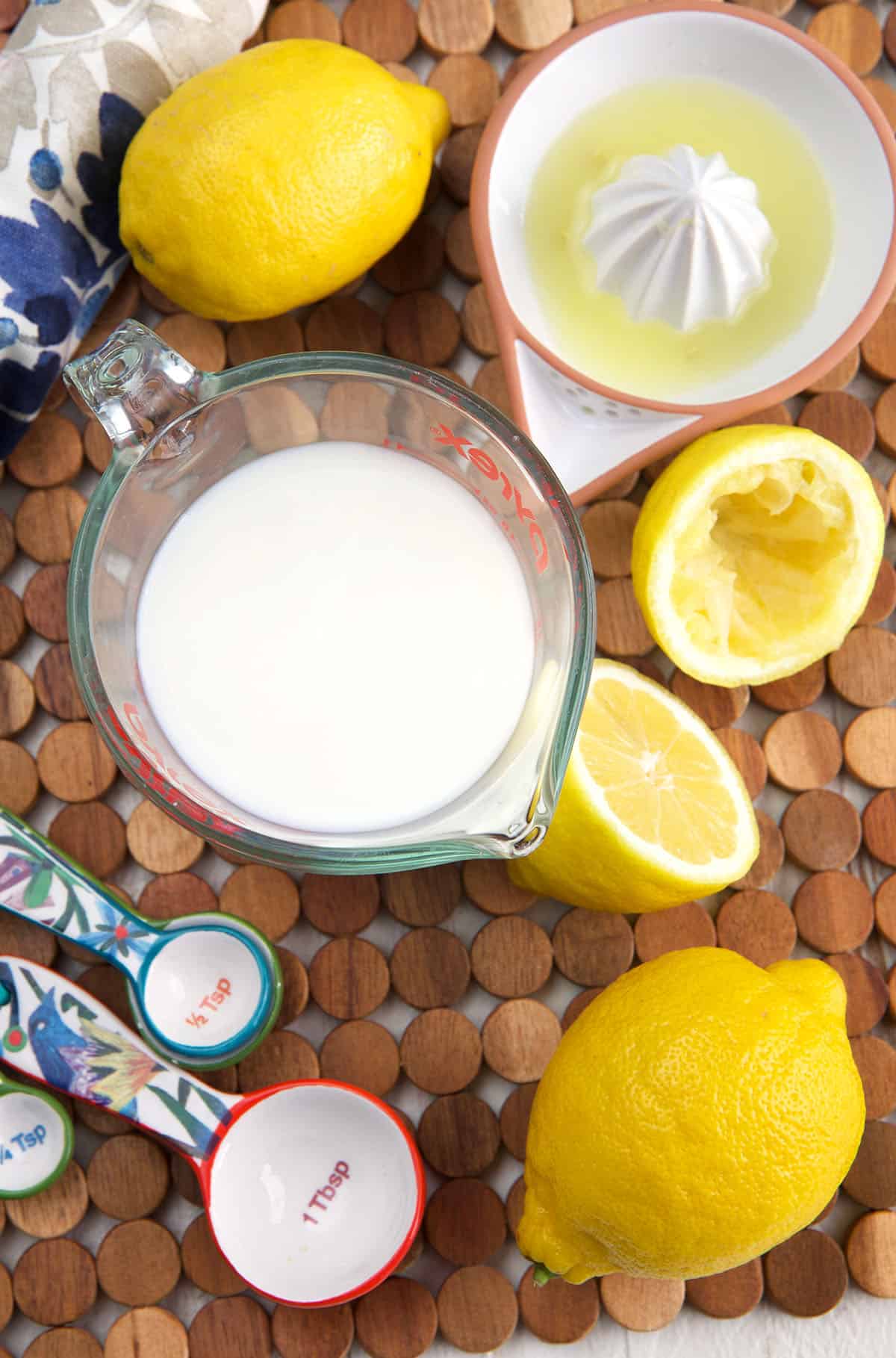
Check out more of my favorite cooking staple recipes!
For more easy pantry recipes, follow us on Instagram and Facebook!
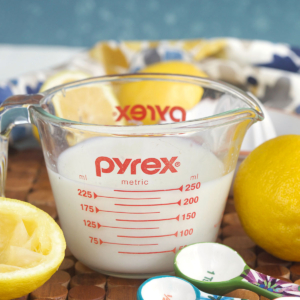
Get the Recipe: Homemade Buttermilk Recipe
Ingredients
- 1 tablespoon lemon juice or vinegar
- 1 cup milk
Equipment
- 1 whisk
Instructions
- Combine the lemon juice and milk.
- Allow the mixture to sit for 1 minute.
- Use in place of buttermilk in recipes.

2 Comments on “How to Make Buttermilk”
Hi Kellie!
Can skim milk be used or does it have to be whole milk? Thanks!
I haven’t tried it with skim milk but I think it should work.